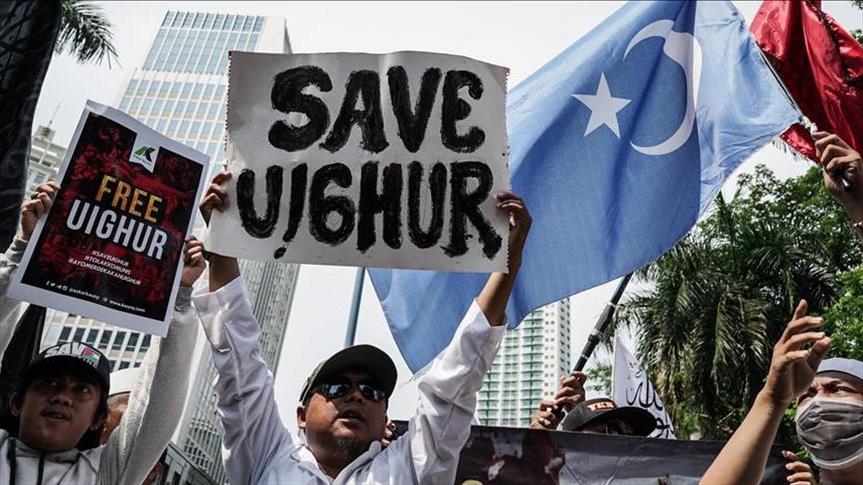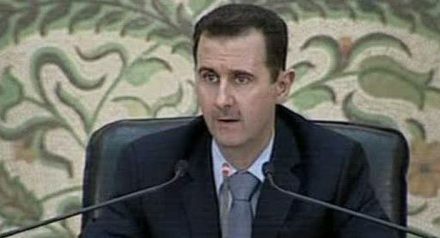By of World Politics Review
Earlier this month, Turkey broke a long period of silence on China’s policy of forcibly incarcerating over 1 million Uighur Muslims, calling it a “great shame for humanity.”
The statement, which prompted an indignant response from Beijing, represented a shift for Turkish President Recep Tayyip Erdogan, who has pursued deeper economic ties with China but has also come under increasing political pressure to speak out against repressive Chinese policies toward its Muslim minorities in Xinjiang, in western China. In an interview with WPR, Selçuk Çolakoglu, director of the Turkish Center for Asia-Pacific Studies in Ankara, discusses what led Erdogan’s government to finally criticize China’s treatment of the Uighurs and whether the dispute will have a lasting impact on Turkish-Chinese relations.
World Politics Review: How has China’s ongoing repression of its Muslim minorities affected the evolution of its relationship with Turkey?
Selçuk Çolakoglu: The treatment of China’s Turkic Muslim minorities has been a sensitive topic for the Turkish public, as well as for Turkish-Chinese relations, since China’s founding in 1949. The first wave of Uighur and Kazakh refugees fleeing communist oppression arrived in Turkey in the early 1950s, and they organized anti-Chinese demonstrations during the Cold War. Ever since the two countries established normal diplomatic relations in 1971, successive Turkish governments have tried to strike a delicate balance between maintaining positive ties with China, on one hand, and speaking out for the rights of Turkic Muslim communities, on the other. Some Turkish leaders hoped that Xinjiang would become a bridge between the two countries, but that never happened, partly due to Beijing’s concerns over pro-Uighur and anti-China activities in Turkey, organized by Turkish nationalist and Islamist groups. After the dissolution of the Soviet Union in the early 1990s, these groups organized public campaigns in Turkey to demand the independence of East Turkestan, as Xinjiang is commonly known in Turkish.
The current ruling coalition in the Turkish parliament, consisting of Erdogan’s Islamist-leaning Justice and Development Party and the Nationalist Movement Party, have successfully pursued a pro-China policy orientation since 2016. However, their supporters have recently stepped up criticism of their silence regarding China’s “re-education camps” for Muslim minorities in Xinjiang. Moreover, the influential Uighur lobby in Turkey has continued its pressure campaign, which has received increasing support from opposition parties in recent months. Those opposition parties, primarily the nationalist Iyi Party and the Islamist Saadet Party, began a public campaign in early 2019 to support Turkic Muslim minorities in China and put pressure on Turkey’s ruling coalition ahead of local elections that are scheduled for March 31.
The ruling coalition was thus forced into a difficult dilemma: They could opt to stay silent, preserving good relations with China but likely provoking a domestic backlash, or they could prioritize the will of their political constituencies and risk Chinese trade and investment ties. The news of the death of Uighur folk poet Abdurehim Heyit, who was sentenced to eight years in prison for one of his songs, sparked public outrage in Turkey, forcing the government to react. That led to the release of a harsh statement from the Turkish Ministry of Foreign Affairs criticizing China’s treatment of its Muslim minorities and calling for the closure of the Uighur internment camps.
WPR: What has led Erdogan to pursue improved relations with China in recent years, and how did that factor into his administration’s calculus on whether or not to issue a forceful condemnation of the internment camps?
Çolakoglu: In 2016, Erdogan and his ruling coalition in Turkey faced a chill in relations with Germany, the Netherlands and the United States. That led Turkish leaders to deepen economic ties with China in order to receive more foreign direct investment and financial flows to boost its crisis-stricken economy. In August 2017, Foreign Minister Mevlut Cavusoglu paid a visit to China, during which he vowed to crack down on anti-China media reports. Later that year, Turkish state lender Ziraat Bank signed a $600 million credit agreement with China Development Bank. Then, in July 2018, the China-led Asian Infrastructure Investment Bank approved a $600 million loan to increase the reliability and security of Turkish gas supplies, and the Industrial and Commercial Bank of China issued a $3.6 billion loan for investments in Turkey’s energy and transportation sectors.
Ankara is now courting further investments in key industrial sectors of Turkey’s economy under the framework of China’s Belt and Road Initiative. Erdogan’s administration has also sought to contract with a Chinese company for the construction of Turkey’s third nuclear power plant. However, this ongoing pro-China stance required the Turkish government to refrain from criticizing the Uighur “re-education camps.” It was always going to be a difficult bargain, but the reported death of Heyit and the resulting public outcry clearly changed Erdogan’s calculus.
WPR: To what extent will Turkey’s decision to condemn Uighur repression inflict lasting damage on relations with China?
Çolakoglu: The Chinese Embassy in Turkey responded to the Turkish government’s critical statement with a lengthy defense of Chinese policies toward its ethnic and religious minorities, on the familiar basis that it is fighting terrorism. Chinese state media also released a video of Heyit, claiming that he is alive and well, and the Chinese Ministry of Foreign Affairs issued a safety alert to Chinese citizens in Turkey. Since then, there seems to have been no further moves from either side, which could indicate Beijing’s preference for not escalating the dispute further.
Ultimately, China does not want to antagonize Turkey over the Uighur issue, but if there is continued public anger in Turkey over Beijing’s policies toward Turkic Muslim minorities, Erdogan’s administration will likely be forced to make further critical statements. The resulting war of words could turn into another crisis between Ankara and Beijing like the one we saw in the aftermath of the July 2009 riots in Urumqi, Xinjiang’s capital. Erdogan, then serving as prime minister, referred to Chinese security forces’ heavy-handed tactics against Uighur protesters as “genocide,” creating a rift in the relationship that took a year to heal.
While the Turkish government will continue to face pressure to speak out on treatment of the Uighurs and other Turkic Muslim Chinese minorities, the reality is that Ankara has limited options to change Beijing’s stance. The Chinese government is extremely sensitive to criticism on this issue, partly due to a strong fear of separatist and extremist sentiments among its minority ethnic groups, particularly in Xinjiang. At the same time, the Uighur internment camps only create a basis for more international criticism of China and potentially undermine China’s soft power around the world. If the two sides are able to maintain a constructive relationship, Turkey may be able to nudge China toward a relatively more inclusive and less coercive approach to its Turkic Muslim minorities.



















